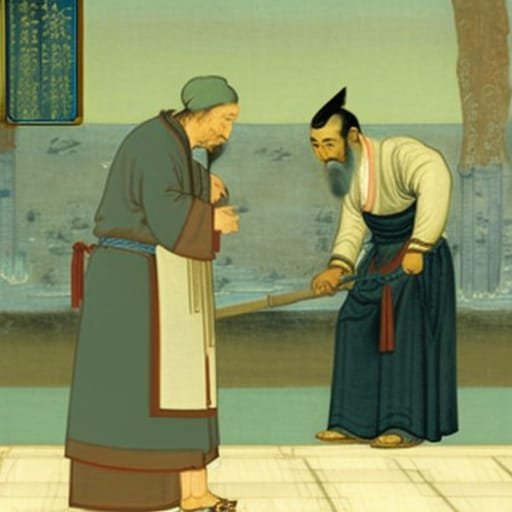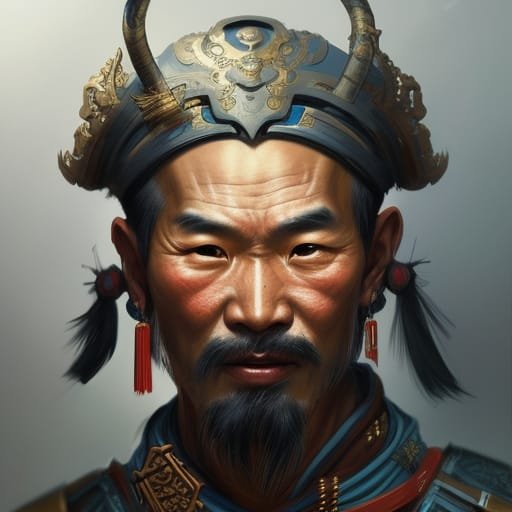
MEDITATIONS: THE DHAMMAPADA, CHAPTER FOUR
Just as from a heap of flowers
Many garlands can be made,
So, you, with your mortal life,
Should do many skillful things.
— Buddha

MEDITATIONS: THE DHAMMAPADA, CHAPTER THREE
For those who are unsteady of mind,
Who do not know true Dharma,
And whose serenity wavers,
Wisdom does not mature.
— Buddha

MEDITATIONS: THE DHAMMAPADA, CHAPTER TWO
Driving away negligence with vigilance,
Ascending the tower of insight and free of sorrow,
A sage observes the sorrowing masses
As someone standing on a mountain observes
fools on the ground below.
— Buddha

MEDITATIONS: THE DHAMMAPADA, CHAPTER ONE
Speak or act with a corrupted mind,
And suffering follows
As the wagon wheel follows the hoof of the ox
— Buddha

MEDITATIONS: FOURTH OF THE FOUR BOOKS
Those who follow that part of themselves which is great are great men; those who follow that part which is little are little men.
— Mencius

MEDITATIONS: Third OF THE FOUR BOOKS
If a man in the morning hear the right way, he may die in the evening without regret.
— Confucius

MEDITATIONS: SECOND OF THE FOUR BOOKS
What Heaven has conferred is called THE NATURE; an accordance with this nature is called THE PATH of duty; the regulation of this path is called INSTRUCTION.
— Confucius

MEDITATIONS: FIRST OF The Four Books
On the bathing tub of T’ang, the following words were engraved: “If you can one day renovate yourself, do so from day to day. Yes, let there be daily renovation.”
— Confucius

MEDITATIONS: ZHUANGZI, CHAPTER THIRTY-THREE
In his aloneness he came and went, joined only by heaven and earth and the purest kernels of imponderable spirit, but still never arrogantly separated himself off from the creatures of the world, for he reprimanded none of their views of right and wrong and thus was able to get along with worldly conventions.
— Zhuangzi

MEDITATIONS: ZHUANGZI; CHAPTER THIRTY-TWO
“It was I who caused your son to become a Mohist! Why, why have you failed to see my good deed? Why do you not visit my grave, where I have already become an autumn fruit hanging from a cypress tree?”
— Zhuangzi

MEDITATIONS: ZHUANGZI; CHAPTER THIRTY-ONE
What worries the Son of Heaven . . . are things like the disharmony of yin and yang . . . Now you, sir, are not in the position of a ruler or feudal lord . . . yet you capriciously take it on yourself to . . . transform and educate all people equally—aren’t you being way too much of a busybody?”
— Zhuangzi

MEDITATIONS: ZHUANGZI, CHAPTER THIRTY
“I have heard that your majesty has a liking for the play of the sword, so I have come to meet with you on the strength of my swordplay. . . . This is a swordplay that displays false appearances to the opponent, leading him on with the lure of gain, thrusting forth only after he does, but preceding him in landing the blow.”
— Zhuangzi

MEDITATIONS: ZHUANGZI, CHAPTER TWENTY-NINE
“Anyone who can be regulated with promises of profit and admonished with slick words is what I would call a stupid, ignorant, ordinary sort of person.”
— Robber Zhi
Zhuangzi

MEDITATIONS: ZHUANGZI, CHAPTER TWENTY-EIGHT
Well, if you can’t help it, then just go with it; do not hate the imponderable spirit in you! If you cannot control your longings, but then you force yourself not to obey them, this is called a double injury.
— Zhuangzi

MEDITATIONS: ZHUANGZI, CHAPTER TWENTY-SEVEN
These spillover-goblet words give forth new meanings constantly, so that all are harmonized through their Heavenly Transitions. They extend on and on without break and thus can remain in force to the end of one’s years.
— Zhuangzi

MEDITATIONS: ZHUANGZI, CHAPTER TWENTY-SIX
It is only when you know uselessness that you can know anything about the useful.
— Zhaungzi

MEDITATIONS: ZHUANGZI, CHAPTER TWENTY-FIVE
It is only someone who transforms every day together with all things who can remain always one and unchanging.
— Zhuangzi

MEDITATIONS: ZHUANGZI, CHAPTER TWENTY-FOUR
Thus do they comply and align themselves with whatever is brought by every passing year, instead of letting change be their very thing-hood! Thus do they drive their bodies and inborn natures about, sinking beneath the ten thousand things, never turning back for their entire lives. How sad!
— Zhuangzi

MEDITATIONS: ZHUANGZI, CHAPTER TWENTY-THREE
“Walk without knowing where you are going, stop without knowing what you are doing, slither along with all things, joining in their undulations. . . . This is what is called melting the ice and breaking through the freeze—but are you capable of it?”
— Zhuangzi

MEDITATIONS: ZHUANGZI, CHAPTER TWENTY-TWO
“You and I are nowhere near it, because we know it.”
— Zhuangzi
